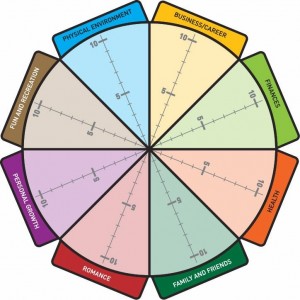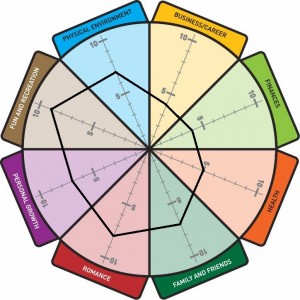Our last post left us dangling on the subject of balance; specifically, balance as the centripetal force behind helping students overcome depression.
But before moving on, a brief side note on my use of the word “depression.”
Personally, I prefer to use the word’s blanket term connotation, which includes everything from “feeling sad” and “negative,” all the way down to more harrowing stuff like “I’m going to kill myself and nothing’s changing my mind.” Am I being inaccurate by covering such broad grounds with a single word?
Using “depression” to cover such an immense range of emotion can be a double-edged sword. But the sword is definitely proportionally challenged. As in, one half, the half that has the drawbacks of blanketing “depression,” is so dull you can’t even cut butter with it. The beneficial half can split atoms.
Maybe that’s a bit of a hyperbole. But what if you feel unnaturally sad, just for a day or two every few weeks or once a month? Just intermittent sadness, not over an extended period of time, not overly extreme to the point of suicide, but something that stops you in your tracks and prevents you from moving on. “I feel kind of depressed, but I’m not actually depressed, otherwise, I’d feel like this every day, and to a much more frightening degree.” This might pop into your head after such an episode, and you might chuck any notions of depression out the window, either for reasons of being hard on yourself (“Why should I call myself depressed when others are suffering more than I am?”), dismissal (“It only comes around sometimes, so it’s probably nothing”), pride (“I’m stronger than that, I just have my weak moments”), embarrassment (“What will others say if I tell them I’m depressed? Will they be more awkward around me?”), or anything else that causes you to toss out the notion that you may need to do something about this soon.
I aim to use “depression” in the less clinical sense and focus instead on the semantics of the word itself: “sluggish in growth or activity”, “low in spirits”, and “sunk below the surrounding region.” Obviously, not all of these pertain to psychology, but nonetheless they are less restricting and more associable for students who don’t consider themselves technically “depressed”
And the great thing about looking at the word semantically is that it helps reach a wider audience. Students will more willingly accept help and advice when they feel less judged and pressured by strict definitions and connotations, in turn preventing more severe symptoms from developing in the future.
So yeah, I lied, that wasn’t a very brief side note. Here’s a picture to make it all better.
… And back to reality we go.
Tragically, ironically (tragonically?), college life is a recipe of unbalance, rife with owlish sleep schedules, late night face-stuffing (junk food, pills, whatever your preferred poison), massive procrastination, last-minute rush-a-thons, self-consciousness, quarter-life crises (that’s the plural for crisis, fyi), and a whole load of other scale-dislodging activities.
One of the biggest, baddest and meanest wolves in the pack is the disruption of a balanced sleep schedule.
As not to be a conventionalist-luddite-person-thing, let’s just get the studies showing how sleep deprivation can temporarily help major depression out of the way. Yes, the subject is well documented, proven to work for the duration of time that the person doesn’t go back to sleep, and it seems like a perfect provisional remedy for students who need to brave entire nights anyway.
I wouldn’t suggest you go actively experimenting with this method, however.
Despite the soundness of the data, this is not a self-administered procedure: it’s done in a controlled clinical setting. And yeah, there’s that whole relapse thing after you go back to sleep the next night. Temporary fixes like not sleeping, along with over-caffeinating yourself, taking uppers, last-minute cramming and other get-shit-done-quick equivalents for maintaining productivity without having to actually work on yourself are so prevalent that they’ve become the only way most students know how to operate in college.
Tragonically, these insta-fixes leave out the necessary work that goes into long-term self-development, and serve little purpose when it comes to overcoming depression further down the road.
“What about insomnia?” you ask. After all, while sleep deprivation can be intentional, insomnia is a condition that is not voluntarily discarded whenever the insomniac wishes.
Regardless of whether your lack of sleep is intentional or not, the point is if you’re not sleeping, you’re going to have a hard time maintaining balanced, organized life in college. The goal of this post is not to determine whether you can or can’t control your sleeping habits, it’s to acknowledge that not sleeping will throw your already busy college life out of whack and make it harder for you, in the long term, to perform at your best.
I’m getting dangerously close to my weekly word limit here (also, I have to sleep), so watch out for next week’s post for a plethora of ingenious ways to help yourself go to sleep. Sleep is one of the most essential steps in physiologically tackling depression and getting on the road to an all-around well-rounded life. Dig it!
———————————————————————————————————
Aleksandr Smechov, Baruch College.
Follow the Campus Clipper on Twitter and Like us on Facebook!
Interested in more deals for students? Sign up for our bi-weekly newsletter to get the latest in student discounts and promotions and follow our Tumblr and Pinterest. For savings on-the-go, download our printable coupon e-book!


















